

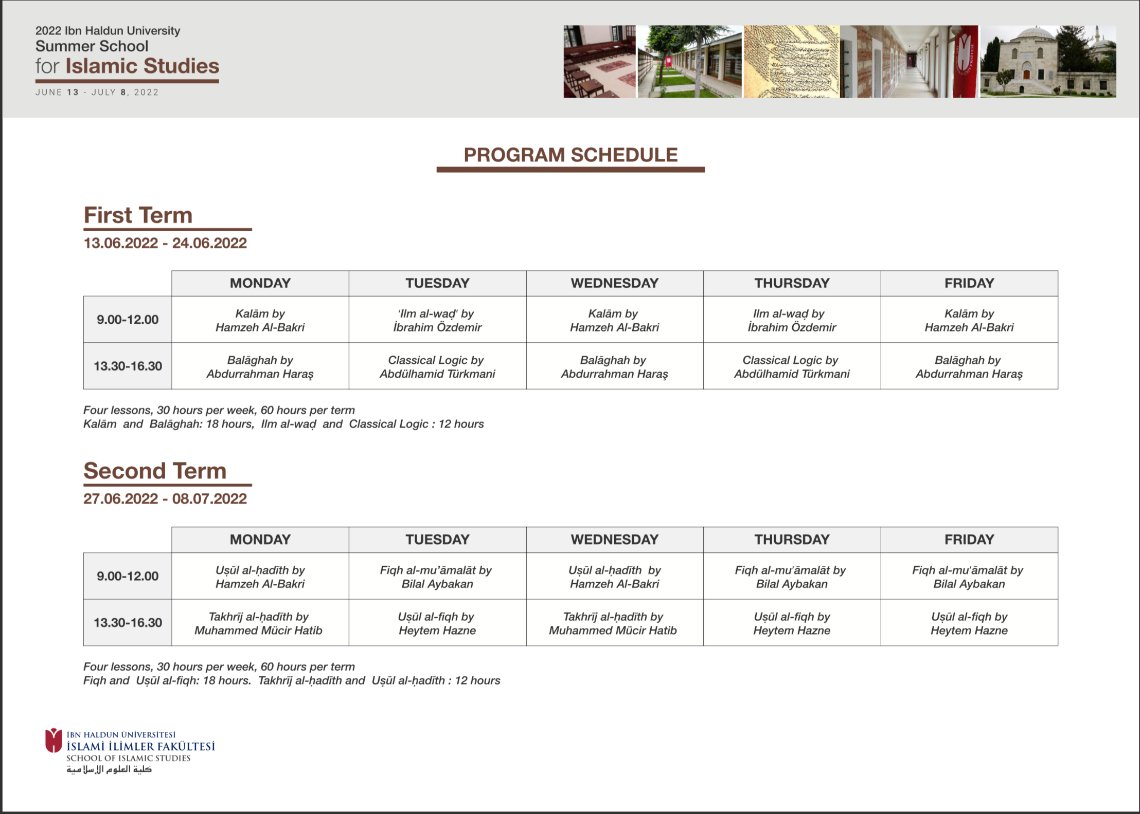
We are delighted to offer summer school for a four-week course from 13 June to 8 July 2022.
The program aims to offer a unique learning experience in Dar al-Hadith in Suleymaniye campus in the vicinity of the monumental Suleymaniye Mosque of Istanbul for students who are seeking classical Islamic knowledge from all over the world.
The program will provide students with a foundation and understanding of the major Islamic Sciences. The students will develop the ability to read and benefit from the Arabic-speaking scholars, distinguished experts in Fiqh, Hadith, Kalām, ʿIlm al-Waḍʿ, Classical Logic, and Balāghah.
The program is primarily designed for the students who want to gain more information and to become familiar with classical approaches in the fields of Islamic studies.
This year program will bring together renowned Arabic-speaking scholars such as Hamzeh Al-Bakri, Abdurrahman Haraş, İbrahim Özdemir, Bilal Aybakan, Heytem Hazne, Abdülhamid Türkmani, and Muhammed Mücir Hatib.
In addition to the attendance of lectures delivered by experts in their fields, during the four-week program, participants will have the opportunity to explore the historic city of Istanbul, the cradle of civilizations while learning at a reputable boutique university in Turkey.
The student will get a participation certificate at the end of the course.
Admission Requirements:
This program is for the students who are fluent in Arabic and have studied Islamic studies in an Arabic environment up to an intermediate level to apply.
The application deadline is May 15, 2022.
The cost of the program will be $1000, payable upon acceptance to the program.
Accommodation: The students admitted to the program will stay in university-managed accommodation (typical halls of residence). The program admission fee covers the accommodation fee.
Please contact (is.summerschool@ihu.edu.tr) for further information or complete the form to register.
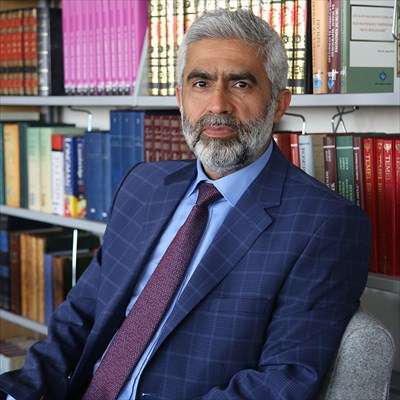
(Instructor)
Dr. Bilal Aybakan is the dean of the School of Islamic Studies in Ibn Haldun University (IHU). Born in Urfa (1963), Dr. Bilal completed his MA (1990) and PhD (1997) at Marmara University, one of the top departments of Islamic Studies in Turkey. While trained as a Ḥanafī jurist, Dr. Aybakan’s research and teaching focus on Fiqh of al-Muamalat, Uṣūl al-fiqh and history of Shāfiʿī madhhab. He has taught many courses regarding different aspects of Islamic Law in undergraduate and graduate programs for 25 years, and supervised many graduate dissertations. He has written various academic works about different aspects of Islamic Jurisprudence in Turkish and English. Some of his books include “Fulfillment of Obligation in Islamic Law”, “Ijmāʿ in the Formative Period of Islamic Law”; “Imām al-Shāfiʿī and the Formation of the Shāfiʿī School of Law”.
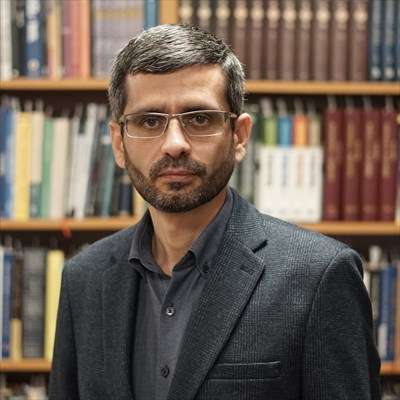
(Instructor)
Born in Jordan in 1982, Dr. Hamza Muhammed Wasim Bekri completed his BA (2004) at al-Balqa Applied University, where he graduated from the Department of the Methodology of Religion with honors. He went on to complete his MA and PhD at the University of Jordan’s Department of Hadith. He has published many beneficial articles and works and is currently an assistant professor in the Department of Islamic Sciences at Fatih Sultan Mehmet Vakif University. In addition to this, he has taught and continues to teach kalam, aqidah, fiqh, usul al-fiqh, and hadith at such institutions as Istanbul Sultan Ahmet Vakfı, EDEP, ISM, and ISAM.
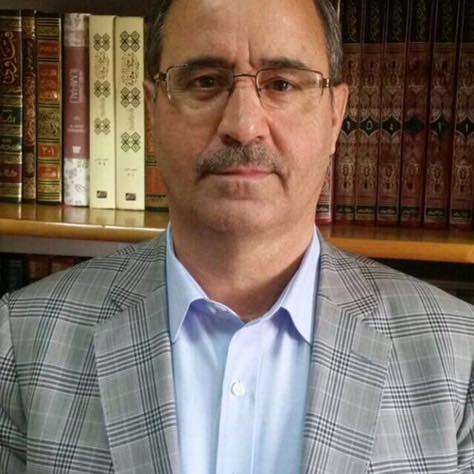
(Instructor)
Dr. İbrahim Özdemir was born in 1961 in the province of Elazığ in Turkey. He completed his primary education in Bingöl, taking private courses in Arabic and the foundational Islamic sciences. In 2001, he graduated from Fırat University’s Department of Theology at the top of his class. He went on to receive his Master’s from the Institute of Social Sciences at the same university, this time in the Department of the Foundational Islamic Sciences, with a focus on Arabic Language and Rhetoric. In 2013, he completed his Ph.D. in Islamic Law at the Department of the Foundational Islamic Sciences at Dicle University in Diyarbakır. He taught in the Department of Theology at the University of Dicle from 2013 to 2014, and is currently an associate professor at Bingöl University, teaching Fiqh in the Department of Theology. His expertise spans the fields of fiqh, usul al-fiqh, kalam, mantiq, and Arabic language.

Abdulhamid Türkmani
(Instructor)
Abdul Hamid al-Turkmani was born in Iran in 1983. He studied the islamic sciences at the Dar al-Uloom Karachi in Pakistan graduating in 2006. Amongst his most prominent teachers were Muhammad Rafi' al-'Uthmani, Muhammad Taqi' al-'Uthmani and 'Abd al-Halim al-Chisti al-Nu'mani. He has been working for a number of years as a researcher and a teacher, focusing on the fields of Theology (Kalam), Logic (Mantiq), and Falsafa in various traditional foundations (awqaf) and islamic schools. He has also published critical editions of particular classical texts. Amongst them: Daw'u'l-Ma’ali ‘ala Bad’i al-Amali by Mulla Ali al-Qari', the commentary (sharh) on the Tahdhib al-Mantiq by Sa'd al-din al-Taftazani by Mulla 'Abd Allah al-Yazdi with the super-commentary (hashiya) by the 'Allamah 'Abd al-Hayy al-Laknawi, and the Sharh al-Mirqah in Mantiq by the 'Allamah 'Abd al-Haqq al Khairabadi, and the Sharh Mantiq al-Hidayah by Maulah Qadi Zadeh al-Rumi. He is currently working at the Turkish Diyanet's Center for Islamic Studies ISAM critically editing certain classical texts in islamic theology.
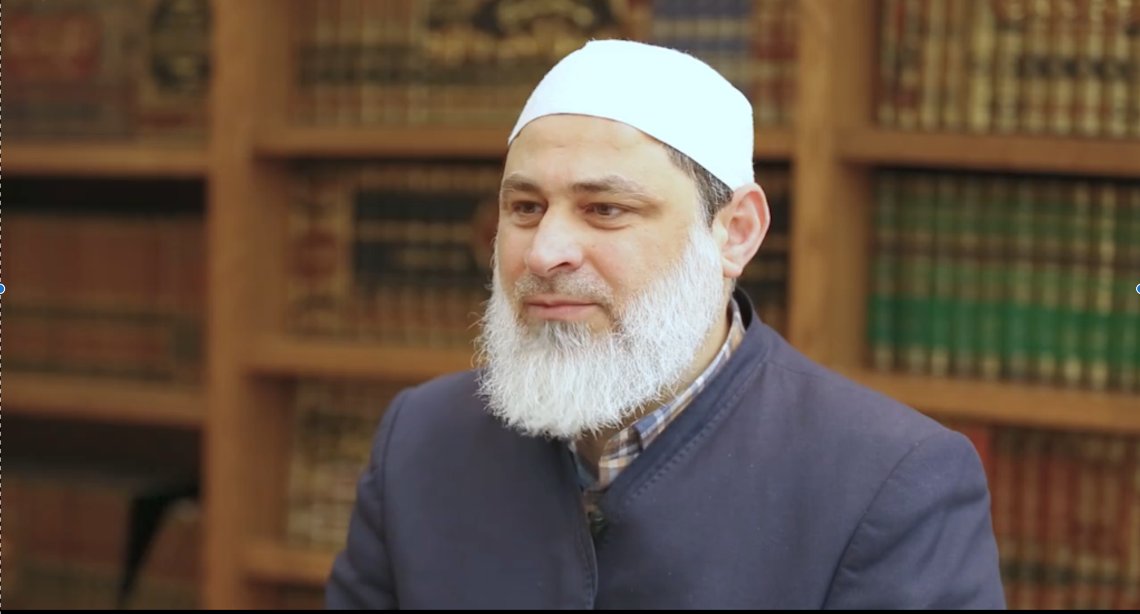
Dr. Muhammed Mucir Hatib
(Instructor)
Muhammad Mujir al-Khatib was born in Damascus in 1971 and studied with various traditional teachers whilst also graduating from the Faculty of Hadith studies at the Islamic University of Medina in Saudi Arabia in 1993. He obtained a Masters degree in Hadith studies at the Islamic University of Omdurman in 2005 and then a PhD from the University of Tripoli in 2014. He is currently Sheikh at the Dar al-Hadith al-Nuriyah in Damascus and has worked for a number of years as a teacher of the Islamic traditional sciences especially the science of Hadith at a number of foundations (awqaf) as well as traditional Islamic schools and madrasas. He has a number of publications to his credit, the most prominent of which is his Ma'rifah Madaar al-Isnad.

Dr. Abdurrahman Haraş
(Instructor)
Abdurrahman Harash was born in Damascus in 1979. He studied there traditionally with a number of prominent scholars. He obtained his certificate for having memorized the Qur'an in 1992. His first undergraduate degree was in Arabic, his second undergraduate was in Shari'ah (islamic law) in 2002. He obtained his first Masters in Shariah in 2009 and in Literature in 2014. He obtained Earlier a PhD in Usul al-Fiqh (Principles of Islamic Jurisprudence) in 2012 and a second PhD in Tafsir (Exegesis) of the Quran in 2022. He has taught in various institutes and universities Principles of Islamic Jurisprudence, as well as Literature and Rhetoric (balagha). He has many publications to his credit, among them: "Instances of Quranic Guidance", a critical edition of the treatises pertaining to Quranic Exegesis by the Ottoman scholar Ibn Kamal Pasha (published along with the rest of his treatises, in the Compendium of Treatises by Ibn Kamal Pasha)."The Skill of the Exegete in the Tafsir of Ibn Ashur." He also has had many articles published in peer-reviewed international journals.

Dr. Heytem Hazne
(Instructor)
Dr. Heytem Hazne. Born in 1972, he obtained his undergraduate degree in 1995, his Masters in 1999 and his PhD in 2004 in the fields of Islamic Jurisprudence and its Principles (Fiqh and Usul al-Fiqh) from the University of Jordan. He has taught in various universities in the Arab world as well as in Turkey. He has a number of publications to his credit in the fields of principles of islamic jurisprudence, as well as in islamic finance, and the comparative study of classical Islamic Law and contemporary legal systems. One of his most salient publications is the study titled "The Development of Jurisprudential Theory in the Hanafi school: an Analytic, Historical and Comparative Study.
How to apply?
Via: https://forms.gle/WCS8RvFxRcaVQcTM8
How to pay the tuition fee?
Fee: The cost of the program will be $1000, payable upon acceptance to the program. The program admission fee covers the accommodation, lunch, and PDF copies of the texts for all the courses. If you arrange your own accommodation a twenty-five percent discount will be provided.
Students can pay the tuition fees with their credit cards using the IHU Online Tuition Payment System upon the approval of their applications.
Bank account information for final registration is as follows.
In credit card payments or transfer transactions, it is required to write in the EXPLANATION ( NAME + SURNAME + PROGRAM NAME ).
1. What are the program dates for 2022?
From June 13 to July 8 2022.
2. What is in the content of the program?
The program is scheduled for four weeks with a pair of two-week. For detailed information about the program click here.
3. Do I have to attend both parts of the program? Is it okay if I only join first or second part?
Yes, if you wish, you can participate in the whole program or only a part of it. We recommend all participants to complete the four-week program. However, if you want to participate in any part of the program, you are allowed to this. In this case, you required to pay seventy-five percent of the entire fee.
4. Who are the instructors of the program?
Hamzeh Al-Bakri, Abdurrahman Haraş, İbrahim Özdemir, Bilal Aybakan, Heytem Hazne, Abdülhamid Türkmani, and Muhammed Mucir Hatib. For detailed information about the instructors click here.
5. What is the course language?
The courses will be in Arabic. The texts selected in the courses will be intermediate-level classical texts. Therefore, advanced knowledge of Arabic is required.
6. What is the program venue?
The entire program will be in Istanbul, at Dar al-Hadith of Süleymaniye Campus of Ibn Haldun University. It is an historic imperial education venue built in the time of the Sultan Sulayman, the magnificent.
7. Do you offer online courses?
No, we do not offer online courses. The program will be face-to-face.
8. What about the course hours daily?
Classes will be from 9.00 a.m. to 16.30 p.m. on weekdays.
9. What is the cost of the program?
The tuition fee for the program will be is $1000, payable upon acceptance to the program.
10. What is included in the price of the course?
The program admission fee covers the accommodation fee, lunch and PDF copies of the texts for all the courses.
11. Where will accommodation be provided?
Dormitories or houses close to campus for girls and boys will be arranged by Ibn Haldun University. Detailed information about the accommodation will be notified to the participants via e-mail. Families need to arrange accommodation themselves.
12. Will the fee change if I arrange my own accommodation?
Yes, a twenty-five percent discount will be provided.
13. Can I apply for financial aid?
Students who can provide a letter of recommendation from their academic advisors, instructors, or employers will be able to benefit from USD 250 reduction. To be considered for this financial aid, please clearly explain the extent of your need on the comments part in the application form and ask your recommender to submit a recommendation letter to
14. How I can pay?
Applicants can pay the tuition fee with their credit cards using the IHU Online Tuition Payment System upon the approval of their applications.
15. Where do I submit my applications?
Please submit your application https://iss.ihu.edu.tr/tr/application
16. I want to come and study at the Summer Courses but I am not studying at any university? Can you still accommodate me?
Yes we can. There is no such requirement.
17. How do I order textbooks?
PDF copies of the texts for all the courses are provided by the program.
18. Can I get an invitation letter for the program?
Yes you can. If you have such a request, please notify us by e-mail.
19. What certificate do I gain by completing Summer Course?
You will get a participation certificate at the end of the course. Your certificate will be issued by School of Islamic Studies of Ibn Haldun University and will state your name, subject and course dates.
20. Will I be covered by medical/travel insurance?
We do not provide travel and medical insurance for our students.
You are highly recommended to take out a travel insurance policy of your own before travel.
21. Do you arrange visas?
We do not provide visas. We provide proof of the course you’re studying on official headed paper, stating the course’s name, duration and cost (including the accommodation element). For full details please use the websites of local Turkish Embassies. Should you have any further queries please contact us.
22. What kind of places will I get to go to on the cultural excursions?
For students coming to Istanbul we are fortunate to have some incredible experiences all within a close distance of our course locations. You will get time to visit The Blue Mosque, St Sofia Mosque, Topkapı Museum, Sulaymaniye Library, the largest manuscript library in Turkey and preserves one of the world's most extensive collections of Islamic manuscripts.
23. How do I contact if I have questions?
If you can’t find what you are looking for, then please contact our admissions team: is.summerschool@ihu.edu.tr